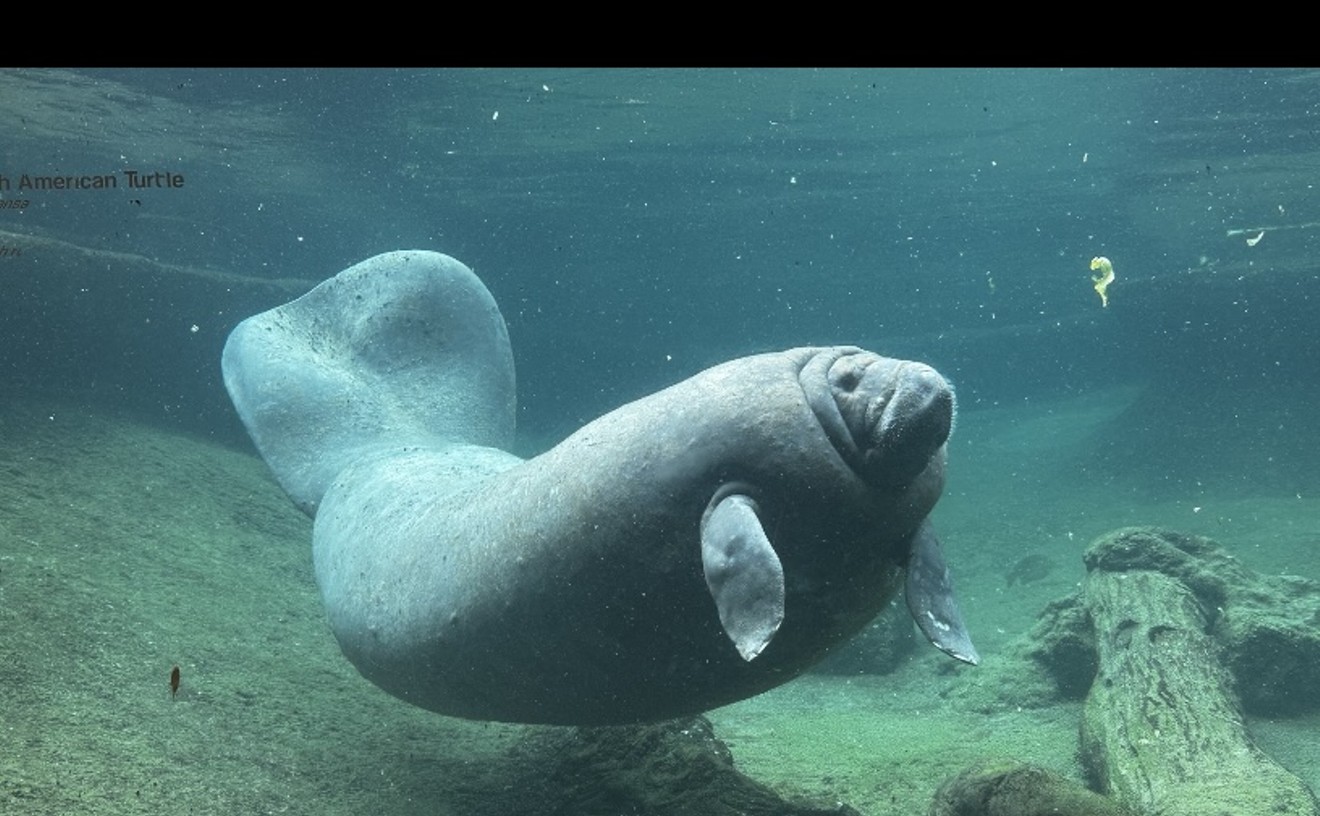If Rundle decides to run for governor, she'll have to get used to more public criticism. That might be tough for her: According to public records that local independent journalist Grant Stern shared with New Times, Rundle has blocked more than 100 people on Twitter — and a great number of the blocked accounts are either critical of her record or advocating for justice for Rainey.
Rundle's blocked list includes multiple journalists, activists, Bernie Sanders supporters, Democratic Socialists of America members, and 12 users with Darren Rainey's mug shot as their profile picture. A block list like Rundle's is a perfect example of why many First Amendment activists say politicians should not be allowed to block users from public accounts: If a politician uses his or her account to disseminate "public information" such as public meetings and news conferences, First Amendment activists argue the account shouldn't block people from receiving that information.
In 2014, a federal court in Hawaii ordered Honolulu Police to pay $31,000 to a group of gun rights activists who sued after their comments were deleted from the department's public Facebook page. Just yesterday, the Knight First Amendment Institute at Columbia University sent Donald Trump a letter demanding he unblock the scores of people he's shut out of viewing his account. The Knight Institute categorized the blocking as a First-Amendment violation.
Rundle has used her Twitter account to announce public meetings and disseminate legal decisions:
But Rundle's block list shows exactly why First Amendment activists are worried about how courts and legislatures treat social media. You shouldn't be barred from receiving public information just because you disagree with it.Eric Hanson has been charged with Grand Theft for fraudulently obtaining a Miami-Dade Aviation Dept. Permit & Identification Badge. pic.twitter.com/vPVJtGntCt
— Kathy Rundle (@KathyFndzRundle) June 6, 2017
(Rundle's spokesperson, Ed Griffith, did not immediately respond to a message about Rundle's block list.)
Multiple Miami politicians have been caught blocking users en masse: Stern, the journalist who obtained Rundle's block list, is also suing Miami Beach Mayor Philip Levine to force him to disclose his own list of banned accounts, which most outside observers assume to be pretty extensive (considering Levine has blocked New Times and several journalists at this paper in the past).
Angela Greben, a California-based activist who tracks politicians who block users online, caught former state Sen. Frank Artiles blocking more than 400 people on Facebook, which could have become the fodder for a minor scandal had Artiles not torched his own career by saying the N-word and hiring Hooters waitresses as "consultants."
William Byatt, one of the users blocked from Rundle's account, is a member of Rundle's own Democratic Party in Miami and a board member of the Miami-Dade County Democratic Progressive Caucus. He says Rundle's office blocked him after he fired off a few tweets critical of the Rainey decision.
"I think it's shameful that someone who can't manage to make their office accessible to voters from one county would even consider inflicting that inaccessibility on the entire state," Byatt told New Times via text message.
Rundle has also blocked high-profile critics such as Billy Corben, the documentary filmmaker and Miami historian who for years has been critical of Rundle's decisions. He tells New Times he's upset about the block.Police brutality apologist and accomplice to torture @KathyFndzRundle blocked me for speaking truth. What a #snowflake. pic.twitter.com/sPAlXdbjQr
— William Byatt (@wm_byatt) May 22, 2017
“This misconduct is consistent with her disrespect for transparency, accountability, and the rule of law," he says.
Both Corben and Harvard criminal justice scholar Rory Fleming posted online that they'd been blocked, but neither account showed up in Stern's public records request. It's unclear if the two accounts were blocked after the request was fulfilled or if the information is incomplete.Miami prosecutor @KathyFndzRundle blocked me when I said she covered up #DarrenRainey murder to protect corrupt cops https://t.co/0ylupwcRbK pic.twitter.com/ISyY5w88dN
— Billy Corben (@BillyCorben) June 6, 2017
Former City of Miami Civilian Investigative Panel member and current City Commission candidate Daniel Suarez, a police-reform activist, has been blocked since Memorial Day.
He's a Navy corpsman.
To be fair, some blocked accounts have not been particularly kind to Rundle. One account, called the Ghost of Darren Rainey, keeps tweeting photos of Rainey's dead body to Rundle's account to, by the user's own words, continually remind her of her actions.Some people can't take criticism well... I re-tweeted @KathyFndzRundle #MemorialDay tweet and got blocked #Miami #truth pic.twitter.com/z7san3zCKC
— Daniel Suarez (@SuarezMiami) May 29, 2017
Byatt, at least, found an easy way around getting blocked online. Eight days after his Twitter ban, Byatt stood in front of Rundle at the Miami-Dade Democrats' meeting and asked why she didn't "let the courts decide" whether the four prison guards who oversaw Rainey's death were guilty of manslaughter.
"What I want to know is why you didn't let the court decide?" pic.twitter.com/Ja3Ukp9ARY
— Jerry Iannelli (@jerryiannelli) May 30, 2017












